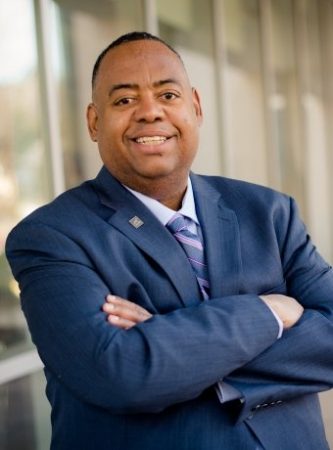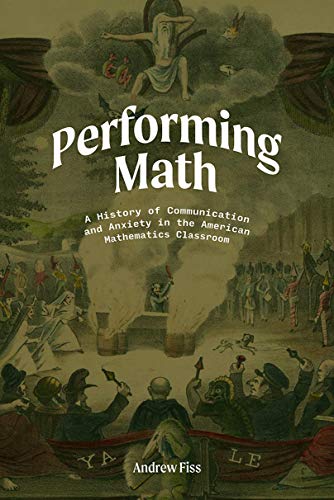
Most are familiar with the shorthand “DEI” for diversity, equity and inclusion. But when he speaks on the topic, Michigan Tech Vice President for Diversity and Inclusion Wayne Gersie almost always adds something. “Sense of belonging.”
“We can be successful on many metrics for diversity, equity and inclusion,” he says. “If students don’t have a sense that they belong — that they are welcomed and valued — then numeric gains won’t mean as much and may even be temporary.”
Shortly after coming to Tech as its first VP-level diversity officer, Gersie said that making progress on campus would require the efforts of many.
“In the words of Helen Keller, ‘Alone, we can do so little. Together we can do so much,’ “ he said. “Campus culture will be enhanced as we work together with respect and openness towards a community where differences are valued, where equal access, opportunity, and representation are achieved, and where we are able to sustain an inclusive environment where all feel a sense of belonging.”
And, he stresses in a recent interview, that involves following a process.
“We need a definite plan so that we can be intentional in our implementation of it.”
In getting DEI buy-in from faculty, students and staff, he says it can’t be won with strictly top-down initiatives.
“The thoughts must come from leadership, yes, but also from the grassroots,” he says. “If this effort is too top-down, there will never be enough buy-in. The happy plan is something that lies between the two.”
“That’s why I want to focus on sense of belonging,” he said. “Because everyone has a stake in that process.”
It’s also why he didn’t arrive and immediately impose a series of decisions or programs. So, overall, how does he view his role?
“I’m here to help set the 10,000-foot tone, perhaps some goals, and see what we can accomplish together,” he said.
A complete program he says, will create efforts and success in three primary areas:
• High-impact practices
• Recruitment and retention
• Communications and branding
Gersie hopes that current and prospective students see his hiring last fall as a “promissory note” from the university, representing clear intent to make progress on DEI issues.
He is currently working with the President’s Council Task Force for Diversity and Inclusion to perform a SWOT (strengths, weaknesses, opportunities and threats) analysis that they will use to generate a plan that will be shared transparently.
“We first need to know what we’re doing now. Then we can plan the things we’re going to do and say ‘here are the metrics,’ and hold ourselves to these actions a year from now,” he said. “We need a definite plan so that we can be intentional in our implementation of it.”
“I know many students, faculty and staff want to see action,” he said, adding that he wants to be able to list steps that will provide immediate benefit while working on the longer-term process.
“I’m happy, for instance, that CSA and other colleges will form groups that will say, “This is what our plan looks like.’ “He said he was also encouraged that some schools and departments had already taken the initiative to publish statements affirming commitments to diversity, equity and inclusion.
Beyond that, though, he said the possibilities are endless. “Maybe we should have a statement on every syllabus,” he said.
He also said that much of the process could be about teaching the skills and benefits of self-reflection and consideration of one’s own heritage, privileged or not. “Maybe part of this is the need to show students how to value their own identity as well as commit to valuing it ourselves.”
Among the measurable outcomes he hopes to improve: The fact that the six-year graduation rate for all underrepresented minority students is less than 62%, compared with 72.2% for all students (based on the freshman class of 2014).
“Representation has an effect on so many things, from recruitment to retention,” Gersie said, adding that one way to increase representation is to ensure blind screening to eliminate unconscious bias in admissions.
“We will be judged in the things we do day-to-day,” he said. “For instance, we can write job postings that have inclusive language. We must do enduring things. It’s clear that people here at Michigan Tech have the passion to create change. But we need to direct that.”
He said the successful dialogue (he had already talked with more than 100 students in March) on diversity has five key components:
• Active listening
• The suspension of judgment
• Leaning into discomfort
• Understanding one’s own privilege
• Having and showing compassion.
Asked about possible resistance to change, including those who would argue that diversity efforts somehow negatively affect quality, Gersie is firm: “The underlying truth is that diversity and excellence are not mutually exclusive,” he said.
Gersie’s Ph.D. is from Penn State University and is in workforce education and development. Previous to becoming Michigan Tech’s first VP for Diversity and Inclusion, he was the chief diversity officer and director of diversity enhancement, student programs and outreach at Penn State’s Applied Research Laboratory. Before that, he was director of the multicultural engineering program there.
Learn more about Gersie.
Follow Michigan Tech’s diversity efforts.
See the College of Sciences and Arts’ diversity statement.
